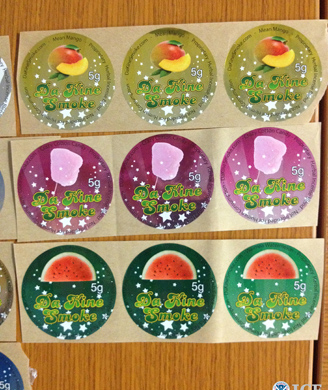Kingpin of Orange County synthetic drug ring pleads guilty to multiple federal charges
SANTA ANA, Calif. – An Orange County man indicted for his role in a far-reaching conspiracy to smuggle, manufacture, and distribute more than $12 million worth of analogue drugs pleaded guilty Monday in federal court.
Sean Libbert, 41, of Newport Beach, pleaded guilty to a series of charges related to a scheme to distribute synthetic drugs commonly called “spice” or “bath salts.” Some of the drugs in this case nearly killed a victim who ingested them, according to the 16-count indictment filed in June 2014 that was the first in the Central District of California involving drug analogues.
The charges stem from a nearly three-year investigation targeting the analogue drug ring conducted by the Los Angeles HIDTA (High-Intensity Drug Trafficking Area) Southern California Drug Task Force, which includes U.S. Immigration and Customs Enforcement’s Homeland Security Investigations (HSI), the Drug Enforcement Administration (DEA), and IRS Criminal Investigation.
Libbert pleaded guilty to four felony offenses: conspiracy to manufacture, possess with intent to distribute, and distribute controlled substance analogues; conspiracy to smuggle controlled substance analogues into the United States using false statements and fraudulent documents; being a felon in possession of firearms and ammunition; and money laundering.
As part of his plea agreement, Libbert has agreed to serve at least six years in federal prison, and the government has agreed to recommend a sentence of not greater than 20 years. Libbert is scheduled to be sentenced March 20, 2017, by U.S. District Judge Cormac J. Carney.
“The investigation in this case revealed that this defendant controlled an organization that was one of the largest importers and distributors of dangerous, synthetic drugs in the nation,” said United States Attorney Eileen M. Decker. “Over the course of only 16 months, this organization smuggled well over 600 pounds of chemicals into the U.S., knowing that the drugs would be used to manufacture synthetic marijuana or ‘spice’ that was smoked or taken orally. As the indictment in this case references, these synthetic drugs pose serious health risks to users.”
Previously in this case, two other defendants pleaded guilty, including a Chinese national who sold Libbert and his associates synthetic drugs that were smuggled into the United States. Another three defendants charged in a separate case pleaded guilty to conspiring with Libbert to manufacture and distribute controlled substance analogues. These other five defendants are expected to be sentenced by Judge Carney next year.
As part of the scheme, Libbert incorporated a series of companies, opened up a series of bank accounts and private mailboxes, and used various websites to sell more than $12 million worth of chemicals and analogue substances to people across the United States, including other distributors and individual users.
Libbert and his co-conspirators also manufactured their own synthetic marijuana, which they marketed and sold under the brand “Da Kine Blend.” When he pleaded guilty, Libbert admitted that over a 7½-month period in 2011 he distributed at least four kilograms of synthetic cannabinoids, which he knew would be used to manufacture at least 100 kilograms of synthetic marijuana for human consumption.
“Ingesting any synthetic cannabinoid or cathinone is like playing a game of Russian roulette – it can kill you in an instant,” said DEA Special Agent in Charge Steve Comer. “Dismantling the highest level drug manufacturing and distribution organizations in the interest of public health and safety is what DEA is all about, and we’ll continue to target these organizations no matter what facade they operate behind.”
In July 2012, HIDTA investigators executed a series of federal search warrants and seized several luxury vehicles, hundreds of pounds of analogues and firearms – including a rifle, a shotgun, two pistols, and approximately 700 rounds of ammunition, all of which Libbert was prohibited from possessing as a result of three prior felony convictions, including a 2002 drug trafficking conviction.
In addition to the drug and firearms charges, Libbert also pleaded guilty to one count of money laundering. Investigators have seized more than $1.1 million in assets connected to the case, including more than $700,000 in profits from the sale of Libbert’s former San Juan Capistrano home.
“This is an important victory for the American public in federal synthetic drug law enforcement,” stated Acting Special Agent in Charge Anthony J. Orlando of IRS Criminal Investigation. “Not only is Libbert being held accountable for his crime, but he has agreed to the forfeiture of the proceeds associated with his illegal activity through the mechanism of asset forfeiture. IRS Criminal Investigation will continue to financially disrupt and dismantle significant drug trafficking organizations through the seizure and forfeiture of assets associated with the crime."
The case is being prosecuted by Assistant United States Attorney Carol A. Chen of the Organized Crime Drug Enforcement Task Force Section.



